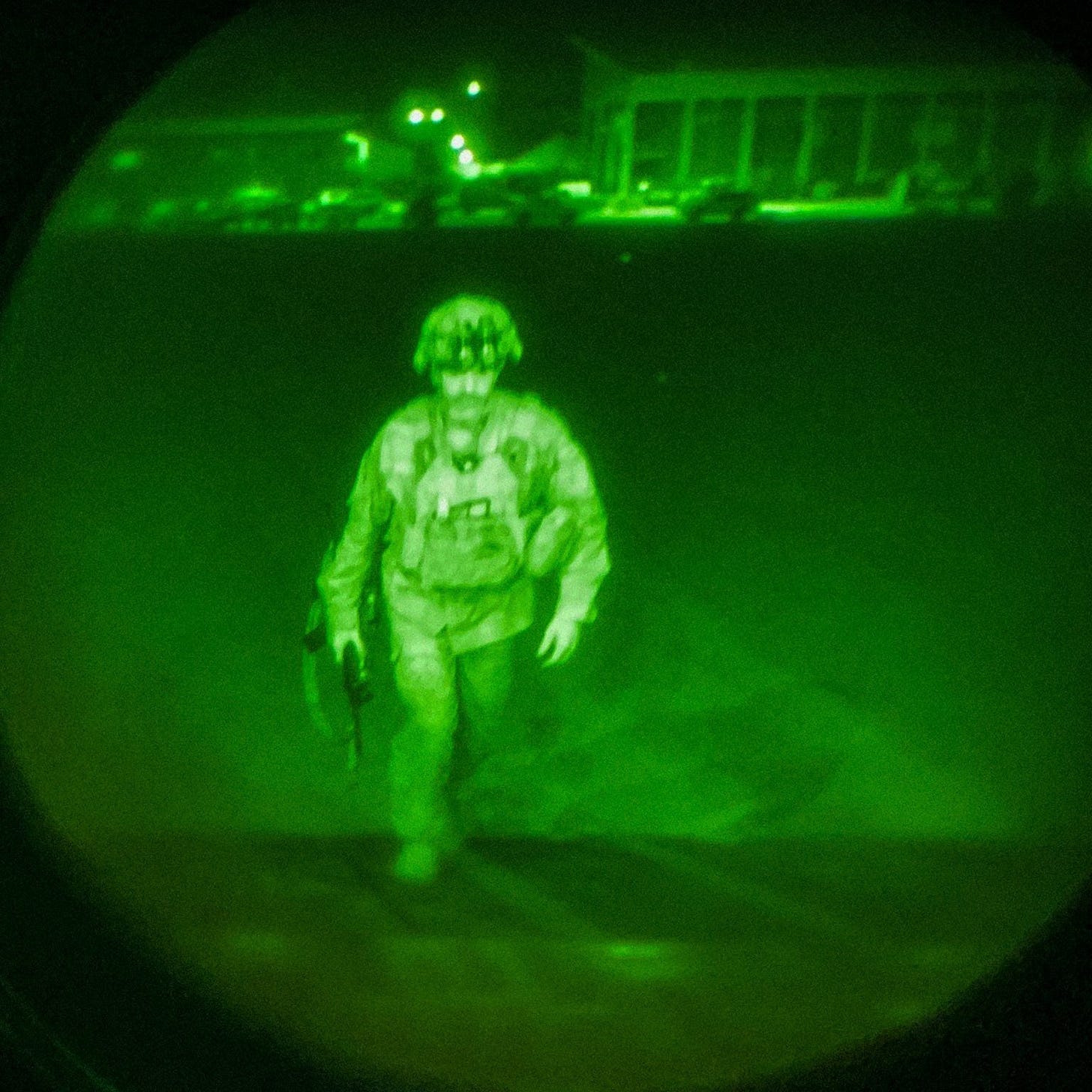‘The Military Mission Is Over, A New Diplomatic Mission Has Begun’
US government still working to get "small number of Americans" out of Afghanistan
The final US forces have departed Afghanistan, closing a nearly 20-year chapter in American military and foreign policy which collapsed on itself in a matter of weeks.
Attention now turns in the near term towards any American citizens who may remain in Afghanistan and whether they want to leave — and in the longer term towards US diplomatic relations with the new Taliban government now in control there.
"Now, U.S. military flights have ended and our troops have departed Afghanistan. A new chapter of America’s engagement with Afghanistan has begun. It’s one in which we will lead with our diplomacy. The military mission is over. A new diplomatic mission has begun,” Secretary of State Antony Blinken said. “So here’s our plan for the days and weeks ahead. First, we built a new team to help lead this new mission. As of today, we've suspended our diplomatic presence in Kabul and transferred our operations to Doha, Qatar, which will soon be formally notified to Congress. Given the uncertain security environment and political situation in Afghanistan, it was the
prudent step to take.”
Despite an historic airlift operation in recent weeks which ferried about 120,000 US and Afghan citizens to safety outside of Afghanistan, there remains a small number of American citizens inside Afghanistan, according to top US officials.
The evacuation became necessary after Afghan government forces collapsed and Taliban fighters surged into the capital city of Kabul, toppling the Western-backed government.
President Biden had withdrawn US forces just weeks ago to complete a peace process arranged by the Trump administration.
The president then had to send thousands of US troops back to Afghanistan to protect the evacuation operation.
“Let me talk briefly about the Americans who remain in Afghanistan. We made extraordinary efforts to give Americans every opportunity to depart the country, in many cases talking and sometimes walking them into the airport. Of those who self-identified as Americans in Afghanistan who are considering leaving the country, we have thus far received confirmation that about 6,000 have been evacuated or otherwise departed,” Blinken said. “This number will likely continue to grow as our outreach and arrivals continue. We believe there are still a small number of Americans, under 200, and likely closer to 100, who remain in Afghanistan and want to leave.
“We’re trying to determine exactly how many. We’re going through manifests and calling and texting through our lists, and we’ll have more details to share as soon as possible,” he added. “Part of the challenge with fixing a precise number is that there are longtime residents of Afghanistan who have American passports and who were trying to determine whether or not they wanted to leave.”

The challenge is separating out any Americans who want to leave from those who wish to remain in Afghanistan, according to Sen Ben Cardin (D-Md), a member of the Senate Foreign Relations Committee.
“[W]e want the mission to be as successful as possible. That means protect our troops, but also get out as many people as possible. We still have a few hundred American citizens that are in Afghanistan. We think most of them probably have made a decision to stay,” Cardin said. “But we still want to make efforts to make sure we remove — can get every American evacuated from Afghanistan before the 31st.”
“Rebranded Taliban?”
Longer term, it remains to be seen whether the US government can work effectively with the Taliban which has taken back power in Afghanistan after nearly 20 years in which they were ousted in which the United States effectively occupied the country following the September 11, 2001, terrorist attacks.
The Taliban now seems to be making an effort to appear less overtly hostile towards the United States and the West than it did during its previous incarnation in charge of Afghanistan from 1996 to 2001.
The Taliban, this time, is much more cash-strapped and would be interested in receiving foreign aid and assistance from Western countries.
“So the Taliban are trying to explore this new territory, they are saying the right things, and they’re saying the right things for a reason. Because people around them are telling them to say the right things,” said NBC chief foreign correspondent Richard Engel. “Some of them believe this, they do want to try differently, they do not want to antagonize an entire new generation of Afghans, but I think a lot of it depends on how the world reacts. Are they going to be embraced? Will they be suddenly get hit by sanctions? Will events on the ground overtake them? Will there be more airstrikes against them?
“So I think, talking to them, there are enough in the senior leadership that they do want to give it a try, but the question is, what is their version of giving it a try and how receptive is the world going to be to a new and [allegedly] rebranded Taliban?” Engel added.
Do you find this post of value?
Please share it…



